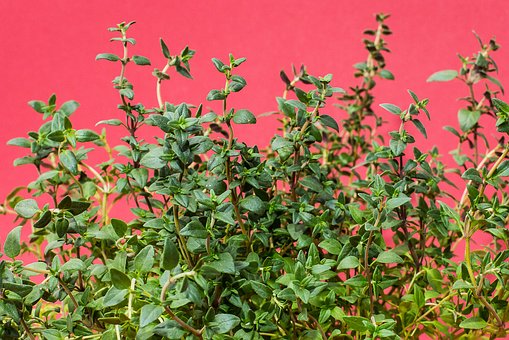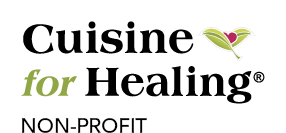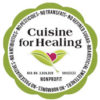
Thyme is one of my most favorite herbs! Its easy to grow, mild and aromatic and it is sooo good for you. Where did this culinary delight come from? For thousands of years, thyme has been a superstar of the herb garden. As an antidote for poison, a plague preventative, a symbol of bravery in battle and a stalwart companion to the grave, thyme has a far more storied past than you’d think if you were walking past it in the supermarket today.Thyme’s reputation as a healer and protector goes back thousands of years. In the Roman era, it was widely held that eating thyme either before or during a meal would protect you from poison. For obvious reasons, this made the herb a particular favorite of the emperors. It was even said that a bath in warm water liberally dosed with thyme could stop the effects of poison after it was inadvertently consumed.
When the Black Death struck in the late 1340s, millions of people turned to thyme for relief and protection. Many of the day’s medicinal concoctions—from posies worn about the neck to poultices applied directly to plague-blistered skin—included the herb as a major ingredient. Though there was little science to these remedies, one of the chemical compounds found in thyme is a powerful antiseptic. Known as thymol, it’s still widely used today in mouthwash, hand sanitizer and acne medication.
Thyme is an herb from the mint family that you probably recognize from your spice set. But it’s so much more than an after-thought ingredient. Its range of use is impressive, and it has over 400 subspecies. Ancient Egyptians used it in their embalming practices, while ancient Greeks used it as incense. Thanks to its distinctive taste, thyme has remained a culinary staple to this day. But thyme is also fast gaining a reputation for its medicinal qualities, such as its ability to help treat acne and high blood pressure.
Here is what organic facts has to say about this amazing shrub;
Anti-fungal Ability
The most active ingredient found in thyme is thymol. This organic compound has a wide range of effects on the body, including its ability to prevent fungal and viral infections, thereby reducing strain on the immune system. This is according to a 2007 report published in the Journal of Food Safety.
Treats Respiratory Issues
One of the most well-known and long-standing uses of thyme in traditional medicine is as a respiratory agent. If you are suffering from bronchitis, chronic asthma, congestion, colds, flu, blocked sinuses or seasonal allergies, thyme acts as an expectorant and an anti-inflammatory substance. It eliminates phlegm and mucus from the respiratory tracts, eases inflammation to help breathe, and prevents microbial development that can lead to illness.In fact, a study conducted in Spain showed that thyme extract oils have anti-inflammatory effects. That’s why brewing thyme into a powerful tea is one of the best ways to achieve relief from respiratory ailments.
Antioxidant Capacity
With one of the highest antioxidant concentrations in any herb, thyme has been praised for thousands of years as an overall health booster. The phenolic antioxidants found in thyme, including lutein, zeaxanthin, and thymonin contribute to neutralizing and eliminating free radicals throughout the body, according to a Korea Food Research Institute study. Free radicals are the dangerous by-products of cellular metabolism that can do major damage to your healthy cells by causing apoptosis or spontaneous mutation. These antioxidants help prevent oxidative stress present in your organs, as well as your neural pathways, heart, eyes, and skin.
Improves Circulation
The high concentration of iron and other essential minerals in thyme make it ideal for stimulating the production of red blood cells, thereby boosting blood circulation and oxygenation to the essential organ systems of the body. According to the USDA National Nutrient Database, 100 grams of fresh thyme contains 17.45 mg, almost 20% of the recommended daily value of iron.
Protects Heart
The rich blend of antioxidants, minerals, and vitamins in thyme have many small effects on the heart, but potassium and manganese are particularly important. Potassium is a vasodilator, meaning that it can reduce the stress on the cardiovascular system by relaxing blood vessels and lowering blood pressure. A study in the UK found that laboratory rats whose diets were supplemented with thyme oil showed a stronger activity level and higher antioxidant levels during their lifespan. This can extend your life by preventing atherosclerosis and avoiding strokes, heart attacks, and coronary heart diseases.
Eye Care
The concentration of carotenoids and vitamin A found in thyme make it an effective antioxidant agent for your vision health. Carotenoids can neutralize the free radicals in your ocular system and slow the onset of macular degeneration and prevent cataracts.
Boosts Immunity
The high levels of vitamin C found in this herb make it a natural immune system booster. Vitamin C stimulates the production of white blood cells, which are the first line of defense in the body’s immune system. Vitamin C also plays a crucial part in the production of collagen, which is essential for the creation and repair of cells, muscles, tissues, and blood vessels.
This herb is hearty, easy to grow in gardens or pots and you can cut wash and use!
Happy healthy Eating! Dana
https://www.healthline.com/health/health-benefits-of-thyme#1
https://pixabay.com/en/photos/thyme/









